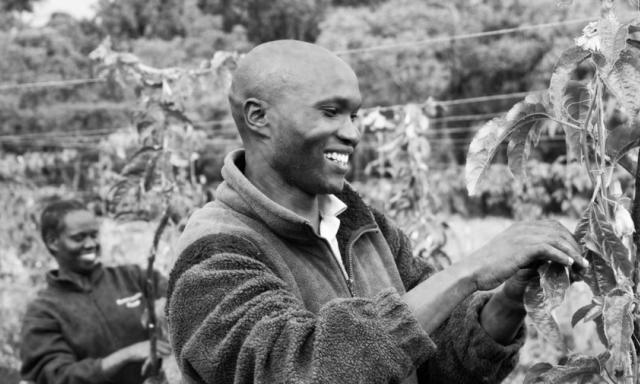

 Article
Article

 Project Nurture helps small-scale fruit farmers in East Africa improve the quality and quantity of their product, enter the value chain and earn higher incomes.
Project Nurture helps small-scale fruit farmers in East Africa improve the quality and quantity of their product, enter the value chain and earn higher incomes.

Insights from
Written by
The Darden School of Business’ Institute for Business in Society partners with Concordia and the U.S. Department of State Secretary’s Office of Global Partnerships to present the annual P3 Impact Award, which recognizes leading public-private partnerships that improve communities around the world. This year’s award will be presented at the Concordia Summit 19–20 September 2016. The five finalists will be highlighted on Darden Ideas to Action on Fridays leading up to the event.
The Partnership: Project Nurture
The Partners:
The Social Challenge: Economic Development
Despite an increasing global demand for fresh and processed fruit, small-scale fruit farmers in East Africa face barriers such as outdated, inefficient farming methods and unstable value chains with limited access to markets. Struggling to produce a profitable yield and unable to earn a reliable income, the farmers and communities are trapped in a cycle of poverty.
The Idea and the Action: Without a reliable source of locally grown fruit, the supply chain for The Coca-Cola Company’s juice manufacturing in Africa was forced to import fruit puree from abroad. Project Nurture worked to create a sustainable fruit industry in Kenya and Uganda by empowering mango and passion-fruit farmers to enter into the value chain and earn higher incomes. The partnership offered specialized training in agricultural techniques, helped to form and strengthen producer business groups, connected farmers to a range of markets and buyers, and worked with local fruit processors to enable them to purchase from farmers and supply to Coca-Cola.
The Impact: Project Nurture benefitted 54,000 smallholder farmers — nearly a third of them women — providing specialized agricultural training to improve the quantity and quality of their fruit, helping them strengthen or create over 1,000 farmer business groups, and connecting them with other markets such as local processors, wholesalers and regional exporters. Two Kenyan processors were certified to enter the Coca-Cola supply chain and now provide all the mango paste used in Minute Maid Mango in several African countries. As a result, Coca-Cola was able to produce a locally sourced fruit juice in East Africa for the first time, reducing time and costs over the long run — while farmers’ incomes more than doubled, increasing by an average of 142 percent.
The Faculty Insight: So often supply chain management is about utilizing the competition between suppliers to drive lower costs and improve performance. This partnership is a great example of how building the capabilities of suppliers can uncover benefits and profits that outweigh pushing supplier performance through traditional competitive methods.
Global corporations realize the value of leveraging the resources, knowledge and trusted reputation of third-party entities, such as TechnoServe and the Gates Foundation, to effect positive social change in this world while also benefiting their own businesses. These types of win-win collaborations between nonprofits and corporations are an increasingly popular and effective way to do business in the developing world.
Project Nurture: A Public-Private Partnership